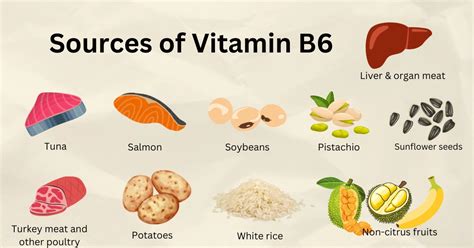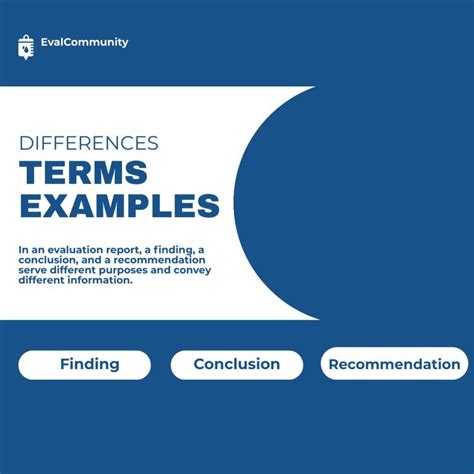Intro
Discover the benefits of Vitamin B6 for pregnant women, reducing morning sickness and nausea, while supporting fetal brain development and immune function, with essential nutrients and prenatal care.
Pregnancy is a critical period in a woman's life, and maintaining a healthy diet is essential to support the growth and development of the fetus. One of the essential nutrients that pregnant women need is vitamin B6. Vitamin B6, also known as pyridoxine, plays a vital role in various bodily functions, including brain development, immune function, and the formation of red blood cells. In pregnant women, vitamin B6 is crucial for the development of the fetus's brain, nervous system, and immune system.
Vitamin B6 deficiency is common during pregnancy, especially during the first trimester. This deficiency can lead to various health problems, including morning sickness, fatigue, and an increased risk of pregnancy complications. Therefore, it is essential for pregnant women to consume adequate amounts of vitamin B6 through their diet or supplements. Foods rich in vitamin B6 include meat, fish, poultry, whole grains, and legumes. Pregnant women can also take vitamin B6 supplements after consulting their healthcare provider.
The importance of vitamin B6 for pregnant women cannot be overstated. Vitamin B6 helps to regulate homocysteine levels in the blood, which is essential for preventing birth defects and pregnancy complications. Additionally, vitamin B6 helps to alleviate morning sickness, which is a common symptom experienced by many pregnant women. Morning sickness can lead to dehydration, weight loss, and electrolyte imbalances, which can be harmful to both the mother and the fetus. By consuming adequate amounts of vitamin B6, pregnant women can reduce the severity of morning sickness and maintain their overall health and well-being.
Vitamin B6 Benefits For Pregnant Women

Some of the key benefits of vitamin B6 for pregnant women include:
- Reducing the risk of birth defects, such as heart defects and cleft palate
- Alleviating morning sickness and nausea
- Supporting the development of the fetus's brain and nervous system
- Regulating blood sugar levels and preventing gestational diabetes
- Reducing the risk of pregnancy complications, such as preeclampsia and preterm labor
- Supporting the production of red blood cells and preventing anemia
Vitamin B6 Food Sources
Pregnant women can obtain vitamin B6 through various food sources, including: * Meat, such as beef, pork, and chicken * Fish, such as salmon and tuna * Poultry, such as turkey and duck * Whole grains, such as brown rice, quinoa, and whole wheat bread * Legumes, such as beans, lentils, and peas * Nuts and seeds, such as sunflower seeds and pumpkin seeds * Soy products, such as tofu and soy milkVitamin B6 Deficiency In Pregnant Women

Some of the symptoms of vitamin B6 deficiency in pregnant women include:
- Morning sickness and nausea
- Fatigue and weakness
- Dizziness and lightheadedness
- Headaches and migraines
- Depression and anxiety
- Birth defects, such as heart defects and cleft palate
Vitamin B6 Supplementation
Pregnant women can take vitamin B6 supplements to prevent deficiency and support their overall health and well-being. However, it is essential to consult a healthcare provider before taking any supplements, as excessive intake of vitamin B6 can lead to adverse effects.Some of the benefits of vitamin B6 supplementation for pregnant women include:
- Reducing the risk of birth defects
- Alleviating morning sickness and nausea
- Supporting the development of the fetus's brain and nervous system
- Regulating blood sugar levels and preventing gestational diabetes
- Reducing the risk of pregnancy complications, such as preeclampsia and preterm labor
Vitamin B6 And Morning Sickness

Some of the ways that vitamin B6 helps to alleviate morning sickness include:
- Regulating blood sugar levels and preventing hypoglycemia
- Reducing inflammation and oxidative stress
- Supporting the production of serotonin and other neurotransmitters that regulate mood and appetite
- Alleviating nausea and vomiting
Vitamin B6 And Birth Defects
Vitamin B6 plays a crucial role in preventing birth defects, such as heart defects and cleft palate. A study published in the Journal of Nutrition found that vitamin B6 deficiency increased the risk of birth defects in pregnant women.Some of the ways that vitamin B6 helps to prevent birth defects include:
- Regulating homocysteine levels in the blood
- Supporting the development of the fetus's brain and nervous system
- Preventing oxidative stress and inflammation
- Regulating blood sugar levels and preventing gestational diabetes
Vitamin B6 And Pregnancy Complications

Some of the ways that vitamin B6 helps to reduce the risk of pregnancy complications include:
- Regulating blood pressure and preventing hypertension
- Reducing inflammation and oxidative stress
- Supporting the production of red blood cells and preventing anemia
- Regulating blood sugar levels and preventing gestational diabetes
Vitamin B6 And Fetal Development
Vitamin B6 plays a crucial role in supporting the development of the fetus's brain and nervous system. A study published in the Journal of Nutrition found that vitamin B6 deficiency impaired fetal brain development in pregnant women.Some of the ways that vitamin B6 helps to support fetal development include:
- Regulating the production of neurotransmitters and hormones
- Supporting the development of the fetus's brain and nervous system
- Preventing oxidative stress and inflammation
- Regulating blood sugar levels and preventing gestational diabetes
Conclusion And Recommendations

Recommendations for pregnant women include:
- Consuming adequate amounts of vitamin B6 through food sources
- Taking vitamin B6 supplements after consulting a healthcare provider
- Maintaining a healthy diet and lifestyle to support overall health and well-being
- Regularly monitoring vitamin B6 levels to prevent deficiency
What are the benefits of vitamin B6 for pregnant women?
+Vitamin B6 offers numerous benefits for pregnant women, including reducing the risk of birth defects, alleviating morning sickness, and supporting the development of the fetus's brain and nervous system.
What are the symptoms of vitamin B6 deficiency in pregnant women?
+Some of the symptoms of vitamin B6 deficiency in pregnant women include morning sickness, fatigue, dizziness, headaches, and depression.
Can vitamin B6 supplementation help to alleviate morning sickness?
+Yes, vitamin B6 supplementation has been shown to alleviate morning sickness and nausea in pregnant women.
What are the food sources of vitamin B6 for pregnant women?
+Pregnant women can obtain vitamin B6 through various food sources, including meat, fish, poultry, whole grains, and legumes.
How much vitamin B6 should pregnant women take?
+Pregnant women should consult their healthcare provider to determine the recommended daily intake of vitamin B6, as excessive intake can lead to adverse effects.
